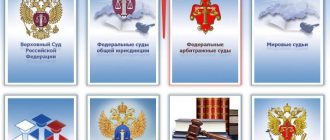Categories of cases within the jurisdiction of the Moscow City Court
The Moscow City Court, as a court of a federal city, has jurisdiction over the following criminal, civil, administrative cases and cases of administrative offenses.
By virtue of Part 3 of Art. 31 (Jurisdiction of criminal cases) of the Criminal Procedure Code of the Russian Federation (hereinafter referred to as the Code of Criminal Procedure of the Russian Federation), the Moscow City Court considers:
1) criminal cases regarding crimes provided for in Part 2 of Art. 105, part 5 art. 131, part 5 art. 132, part 6 art. 134, part 5, article 228.1, part 4, art. 229.1, art. 277, part 3 art. 281, art. 295, art. 317, art. 357 of the Criminal Code of the Russian Federation (hereinafter referred to as the Criminal Code of the Russian Federation), with the exception of criminal cases of crimes committed by persons under the age of eighteen, and criminal cases in which life imprisonment or the death penalty cannot be imposed as the most severe type of punishment. in accordance with the provisions of Part 4 of Art. 62, part 4 art. 66 and parts 4 art. 78 of the Criminal Code of the Russian Federation, as well as criminal cases of crimes under Part 3 of Art. 126, art. 209, part 4 art. 210, art. 210.1, p.h. 1-3 tbsp. 211, part 1 art. 212, art. 227, art. 275, art. 276, art. 278, art. 279, p.h. 1.2 tbsp. 281, Art. 353 - 356, art. 358, h.h. 1.2 tbsp. 359, art. 360 of the Criminal Code of the Russian Federation;
2) criminal cases against a member of the Federation Council, a deputy of the State Duma, a judge of the Constitutional Court of the Russian Federation, a judge of a federal court of general jurisdiction or a federal arbitration court, a magistrate, a judge of a constitutional (statutory) court of a constituent entity of the Russian Federation at their request submitted before the start of the trial proceedings;
3) criminal cases, the materials of which contain information constituting a state secret.
By virtue of Part 2 of Art. 389.3 (“Procedure for filing appeals, presentations”) of the Code of Criminal Procedure of the Russian Federation The Moscow City Court, as an appellate instance, considers appeals:
1) on a verdict or other decision of a district court
2) to an interim decision of a court of a federal city.
The Moscow City Court, as a court of first instance, considers the following categories of civil cases:
1) related to state secrets (Article 26 of the Civil Procedure Code of the Russian Federation (hereinafter referred to as the Code of Civil Procedure of the Russian Federation);
2) applications for adoption of a child from citizens of the Russian Federation permanently residing outside the territory of the Russian Federation, foreign citizens or stateless persons wishing to adopt a child who is a citizen of the Russian Federation and living in the territory of Moscow ( clause 2 of article 269 of the Code of Civil Procedure of the Russian Federation ) .
3) petitions of collectors for the forced execution of a decision of foreign courts in the event that the place of residence or location of the debtor in the Russian Federation is determined as the city of Moscow, and in the event that the debtor does not have a place of residence or location in the Russian Federation or his location is unknown , the location of his property was established in the city of Moscow ( Article 410 of the Code of Civil Procedure of the Russian Federation) .
4) Civil cases with the participation of foreign states, with the exception of cases provided for in Articles 25 and 27 of the Code of Civil Procedure of the Russian Federation (clause 2, Article 417.2 of the Code of Civil Procedure of the Russian Federation) .
5) the exclusive jurisdiction of the Moscow City Court as a court of first instance includes civil cases that are related to the protection of copyright and (or) related rights, except for rights to photographic works and works obtained by methods similar to photography in information and telecommunication networks, in including on the Internet, and for which they have taken preliminary interim measures in accordance with Art. 144.1 Code of Civil Procedure of the Russian Federation. If the Moscow City Court considers a case in which proceedings were initiated at the plaintiff’s claim after the entry into force of a decision made by the same court in favor of the same plaintiff in another case on the protection of copyright and (or) related rights in information and telecommunication networks, including on the Internet, the Moscow City Court also resolves the issue of permanently restricting access to a site on the Internet, on which information containing objects of copyright and (or) related rights, or information necessary for obtaining them using information and telecommunication networks, including the Internet. ( Article 320 note 1. Code of Civil Procedure of the Russian Federation)
6) in accordance with paragraph “b” of Art. 413 of the Labor Code of the Russian Federation, the Moscow City Court, as a court of a federal city, makes a decision to declare a strike illegal at the request of the employer or prosecutor.
In accordance with Art. 320.1 (“Courts considering appeals, presentations”) of the Code of Civil Procedure of the Russian Federation The Moscow City Court, as an appellate court, considers appeals, presentations :
1) on decisions of district courts;
2) on decisions of this court in civil cases that are related to the protection of copyright and (or) related rights, except for rights to photographic works and works obtained by methods similar to photography in information and telecommunication networks, including the Internet , and for which they have taken preliminary interim measures in accordance with Art. 144.1 Code of Civil Procedure of the Russian Federation.
In accordance with the provisions of the Code of Administrative Proceedings of the Russian Federation (hereinafter referred to as the CAS RF), the Moscow City Court, as a court of first instance, considers administrative cases (Article 20 of the CAS RF):
1) related to state secrets;
2) on challenging normative legal acts, acts containing clarifications of legislation and having normative properties, government bodies of the constituent entities of the Russian Federation, representative bodies of municipalities
3) on challenging decisions of qualification boards of judges of constituent entities of the Russian Federation, with the exception of decisions on the suspension or termination of the powers of judges, on the suspension or termination of their resignation;
4) on challenging the decisions and actions (inaction) of the examination commissions of a constituent entity of the Russian Federation on taking the qualification exam for the position of a judge on the grounds of violation of the procedure for conducting the qualification exam and other decisions on refusal of admission to take the qualification exam for the position of a judge, as well as on challenging the actions ( inaction) of the specified examination commissions, as a result of which the candidate for the position of judge was not allowed to take the qualification exam;
5) on the suspension of activities or on the liquidation of regional branches or other structural divisions of political parties, interregional and regional public associations; on the liquidation of local religious organizations, centralized religious organizations consisting of local religious organizations located within one subject of the Russian Federation; on the prohibition of the activities of interregional and regional public associations and local religious organizations, centralized religious organizations consisting of local religious organizations located within one subject of the Russian Federation, which are not legal entities;
6) on the termination of the activities of mass media, the products of which are intended for distribution in the territory of one constituent entity of the Russian Federation;
7) on challenging decisions (evading decision-making) of election commissions of constituent entities of the Russian Federation (regardless of the level of elections, referendums), district election commissions for elections of deputies of the State Duma of the Federal Assembly of the Russian Federation, district election commissions for elections to legislative (representative) bodies of the state authorities of the constituent entities of the Russian Federation, with the exception of decisions upholding decisions of lower-level election commissions and referendum commissions;
 on the cancellation of registration of a candidate for deputy of the State Duma of the Federal Assembly of the Russian Federation nominated in a single-mandate electoral district;
on the cancellation of registration of a candidate for deputy of the State Duma of the Federal Assembly of the Russian Federation nominated in a single-mandate electoral district;
9) on canceling the registration of a candidate for the position of the highest official of a constituent entity of the Russian Federation (head of the highest executive body of state power of a constituent entity of the Russian Federation);
10) on canceling the registration of a candidate, including those included in the registered list of candidates, on canceling the registration of the list of candidates for elections to legislative (representative) bodies of state power of the constituent entities of the Russian Federation;
11) on the dissolution of election commissions, except for the case specified in paragraph 10 of Article 21 of this Code;
12) on determining the deadline for calling elections to government bodies of the constituent entities of the Russian Federation, as well as to local self-government bodies;
13) on recognizing the composition of the legislative (representative) body of state power of a constituent entity of the Russian Federation, a representative body of a municipal formation, as unauthorized;
14) on the award of compensation for violation of the right to trial within a reasonable time or the right to execution of a judicial act within a reasonable time in cases within the jurisdiction of magistrates and district courts;
15) to challenge the results of determining the cadastral value. including challenging the decisions of the commission for the consideration of disputes on the results of determining the cadastral value, as well as challenging the actions (inaction) of such a commission.
In accordance with Art. 296 (“Courts considering appeals, presentations”) CAS RF The Moscow City Court, as an appellate court, considers complaints against decisions of district courts in administrative cases, complaints against adopted decisions of the Moscow City Court at first instance.
The Moscow City Court, as a court of first instance, does not hear cases of administrative offenses.
According to Art. 30.1 of the Code of the Russian Federation on Administrative Offenses (hereinafter referred to as the Administrative Offenses Code of the Russian Federation), judges of the Moscow City Court consider complaints against decisions in cases of administrative offenses made by a district court judge that have not entered into legal force.
Based on Part 7 of Art. 7 of the Federal Constitutional Law of July 29, 2018 No. 1-FKZ “On amendments to the Federal Constitutional Law “On the Judicial System of the Russian Federation” and certain federal constitutional laws in connection with the creation of cassation courts of general jurisdiction and appellate courts of general jurisdiction” from 01.10 .2019, the powers of the Presidium of the Moscow City Court to consider cassation complaints and submissions are retained if they are filed before October 1, 2019.
According to paragraph 7 of the Resolution of the Plenum of the Supreme Court of the Russian Federation dated 07/09/2019 No. 25 “On some issues related to the start of the activities of cassation and appeal courts of general jurisdiction”, from 10/01/2019 the powers of the chairman of the Moscow City Court and his deputies for consideration are retained complaints (protests) against a decision in a case of an administrative offense that has entered into legal force and (or) decisions made based on the results of consideration of complaints (protests) filed with these courts before 10/01/2019 published
: 12/26/2016 14:52:07 , updated: 10/29/2019 15:52:38
The concept and types of jurisdiction of criminal cases in the Russian Federation
Jurisdiction in criminal proceedings, as well as in civil proceedings, is divided into the following types:
- generic;
- territorial;
- interconnected.
Generic jurisdiction makes it possible to differentiate the procedure for considering certain categories of civil and criminal cases between authorities at different levels, i.e. establishes the procedure according to which a decision is made to refer a criminal case to a particular body under jurisdiction.
Neither investigative bodies when sending cases, nor the courts themselves can independently decide to send cases to another body, unless otherwise provided by law. Thus, in the Constitution of the country there is a clause (Article 47), according to which no one can be forcibly deprived of the right to trial in court according to the jurisdiction available in the country.
Depending on the territory in which the controversial situation takes place (the commission of a crime), the court to which the case materials will be submitted for consideration will depend. This is called territorial jurisdiction . In civil proceedings, the claim is sent to the court in the territory of whose jurisdiction the defendant (the organization against which the claims are made) resides. There are both general territorial jurisdiction, and alternative (the plaintiff has the right to choose a court in accordance with the rules enshrined in the law), exclusive (depending on the type of claim), contractual (the parties can change the court by agreement).
Interconnected jurisdiction involves consideration of a new case (claim) in the same court and by the same judge who is considering a previously directed criminal case (filed claim), regardless of territoriality, in a single process after their connection. This procedure is designed to save government money and time costs for the judiciary.






